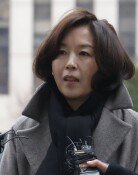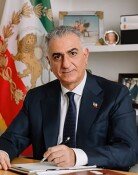Voluntary Agency Network of Korea
Voluntary Agency Network of Korea
Posted March. 01, 2010 09:27,
Park Ki-tae started exchanging correspondence with foreign students via the Internet in 1999. He did so to help ease his desire for international exchange via cyberspace because he could not afford to study abroad. Many foreigners responded to his offer of helping them study about Korea. Exchanging e-mail messages, Park realized that many overseas people had misinformation about Korea. To help introduce and promote Korea accurately, he set up the Voluntary Agency Network of Korea, a cyber diplomatic corps. He has been head of the group for 11 years.
The most notable of his groups achievements is the correction of the naming of the East Sea in foreign publications. In 2000, it sent a correction request to National Geographic, which marked the East Sea as the Sea of Japan, and received an apology and promise to use both names. In 2002, the map publisher World Atlas agreed to publish the name of the sea with the two names as well. World Atlas left a comment on its homepage saying, The ultimate winner of the war between Korea and Japan over the sea is young Koreans.
Park launched the network in the belief that once 200,000 cyber diplomats are cultivated, they can secure one million foreigners friendly to and supportive of Korea. The strategy was for individual members to provide accurate information on Korea to five foreigners each, on top of helping foreigners in need. More than 1,000 members signed up in the networks first year, and the number of paying members has ballooned to more than 18,000, and that of members not paying fees is 20,000. As many as 8,000 foreigners have also joined the network. After singer Kim Jang-hoon, the groups goodwill ambassador, urged his fans to join the club in a concert, as many as 1,000 new members signed up last month alone.
A volume of two books will soon be released on the groups highlights over its first 10 years. One of the books, Results of Correcting Information about Korea, will list the results of efforts to correct misinformation about Korea in foreign textbooks, encyclopedias and Web sites. The second book, Heart Throbbing Country of Korea, is meant to promote the country. Reflecting the past decade of his group, Park said, In the past, when inaccurate information about Korea was confirmed in foreign countries, all Koreans did was criticize civil servants. Now, theyve developed the perception that correcting distortions about Korea is an individual responsibility. The group deserves warm applause for 10 years of achievement as a grassroots civilian diplomatic club.
Editorial Writer Bhang Hyeong-nam (hnbhang@donga.com)







